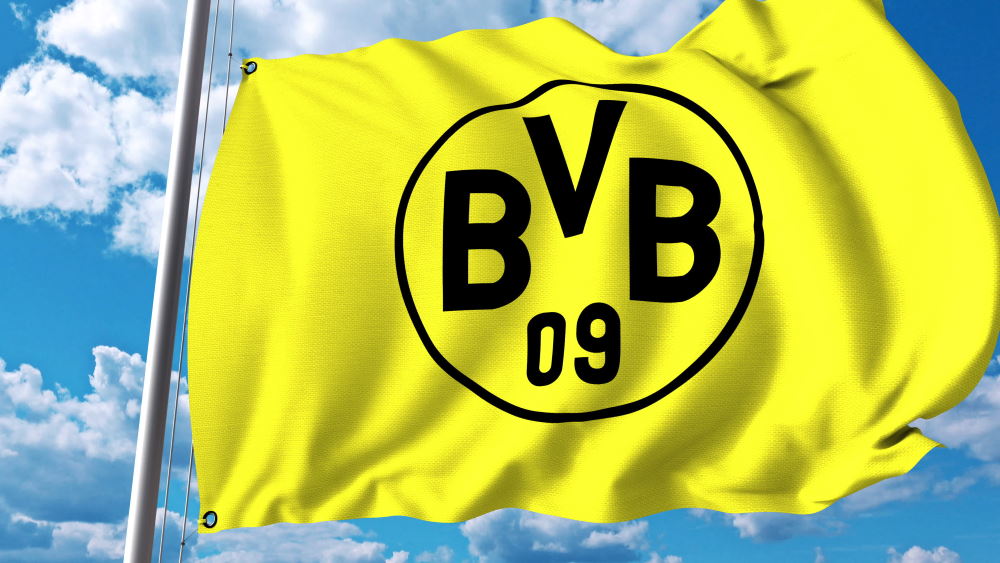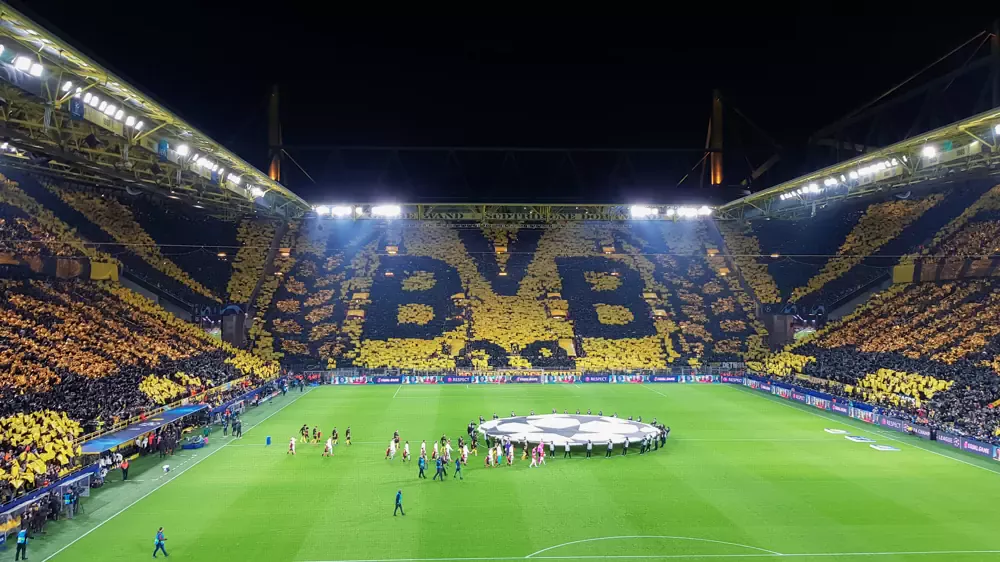The underrated 1997 Borussia Dortmund that won the Champions League
German football of course has a rich history in the sport. It is one of the countries with the biggest traditions in football, they have produced some of the best players of all time, they are a consistently competitive squad in the World Cup, and clubs such as Bayern Munich are institutions of the European scene.
How did this happen? How a club from Germany that didn't have a lot of European pedigree and history in the biggest club competition managed to defeat some of the best team in the world that year to win the coveted trophy? How was this legendary Dortmund side built? Let's find out.
Ottmar Hitzfeld - the brain behind the success
All of this begins with their manager, football legend Ottmar Hitzfeld. A striker in his playing days and a trained mathematician, Hitzfeld took over at Dortmund after spending the vast majority of his football career in Switzerland. By the time he became the manager of the Yellow and Black team in 1991, they were far from being a hot commodity in the Bundesliga, and they were falling behind the best teams in the country.He finished third in his first season at the helm, which helped the club qualify to the 1992/93 edition of the UEFA Cup, now known as the UEFA Europa League. As an interesting fact, and in terms of storytelling, a bit of foreshadowing, they would reach the finals of the competition of that year, but they would end up losing against Italian giants Juventus-this is certainly not going to be the last time that this Dortmund side would meet up with the Old Lady in this story.
The improvements and success continues
Hitzfeld kept improving the side, and kept working on the tactical side of things until the results started to be shown on the pitch: Borussia Dortmund won the Bundesliga in the 1994/95 season and managed to repeat said feat in the 1995/96 season, thus cementing themselves as the best team in the country. Such were their displays at the time that defender and leader of the team, Matthias Sammer, won the Ballon d'Or in 1996 with one more vote than the Brazilian Ronaldo.By the time that Dortmund reached the 1996/97 edition of the UEFA Champions League, it was logical to expect a decent performance as Hitzfeld had built a competitive squad and the core players that won back-to-back Bundesliga titles were still there. But not even the most optimistic Borussia Dortmund fans were expecting what eventually happened that season.
The composition of the team
Sammer was of course the star of the team after winning the Ballon d'Or-the only Borussia Dortmund player to achieve that, as of this writing. But then the back four was completed by the likes of Stefan Reuter, Jurgen Kohler and Jorg Heinrich, adding a lot of defensive solidity to the defensive side of things.In terms of midfield, one of their most important additions was Portuguese midfielder Paulo Sousa, who had played the two seasons prior with Juventus, which added a level of experience and know-how in the European stage that was needed-after all, Paulo Sousa had won the Champions League the prior season with the Old Lady.
The Scottish Paul Lambert joined Borussia Dortmund that season and only stayed there for that year, but what an impact did he had with the German team! It is rare to see a Scottish footballer in Germany, especially one that came from a team of his country such as Motherwell, but Lambert adapted to Hitzfeld's system extremely well and added a level of aggression and technique that was so needed in the squad.
Up front you had a very reliable goalscorer in Karl-Heinz Riedle, who always scored goals for all the clubs he played for. After very successful stints in Werder Bremen and Italian side Lazio, he was one of the most experienced players in this Dortmund side and it showed during this Champions League seasons.

The way to the final
Dortmund finished second in the group stage behind Atletico Madrid, but they easily dispatched French champions Auxerre in the quarterfinals. Then their biggest challenge came in the semifinals against Sir Alex Ferguson's Manchester United, but they managed to win through an aggregate win of 2-0, which highlighted in England the lack of European know-how that the Red Devils had in that particular time period.The final at Olympiastadion in Munich
Then came the final in the stadium of Bayern Munich, the Olympiastadion, against the reigning champions Juventus.The Old Lady were widely regarded as the best team in the world at a time, and it is hard to argue that when the likes of Zinedine Zidane, Alessandro Del Piero and Christian Vieri were part of that squad. Dortmund were the massive underdogs of this final.
However, Juventus didn't have Karl-Heinz Riedle.
The seasoned striker shocked the Italian giants (and arguably the entire football world) when he scored a brace in the first half to put Dortmund ahead. This put the tide in the Germans' favor, and while Del Piero, who came on as a sub, scored one for Juve in the 65th minute, Lars Ricken entered in the 70th minute and scored immediately, thus killing the Old Lady's momentum and giving Dortmund the mental victory.
A few minutes later, Dortmund would get the actual victory on the pitch.
Widely regarded as one of the biggest upsets in the Champions League, this is an achievement that should always be remembered. Dortmund were not favorites in any of the stages of their Champions League run, and they still managed to overcome the odds, and surprised everybody in the process.
That's the kind of stuff that make us love this game.
You can see highlights on YouTube from the final here.
